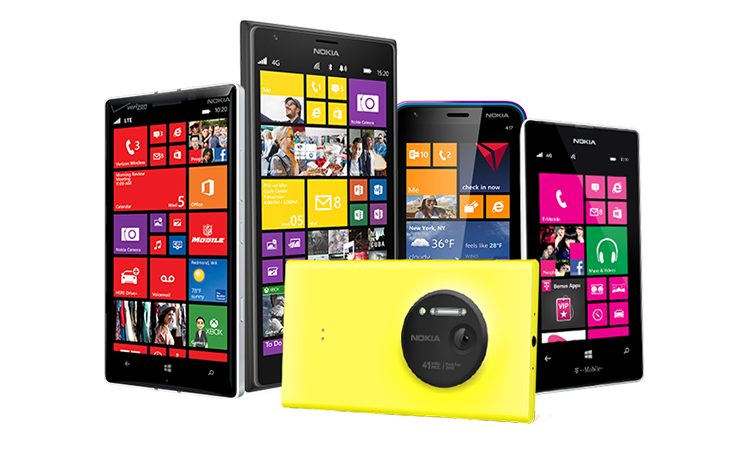
Could a Bing OS topple Chromebooks, or is it too late?
Rumors run rampant on the internet. A new one has surfaced recently that has a couple of trusted sources behind it, as both Tom Warren and Paul Thurrott point to the possibility of a version of Windows 8.1 with Bing -- a Bing OS if you will. It would be geared towards competing against Chrome OS, which has become an increasing concern for Microsoft.
Warren reports that "sources familiar with Microsoft’s plans tell The Verge that the company is building 'Windows 8.1 with Bing', a version that will bundle key Microsoft apps and services". Yes, "sources familiar" is not the first words in reliability of a report, but Thurrott also concurred, stating "Microsoft is testing whether it makes sense to provide a free version of Windows down the road. And while recent leaks have revealed the existence of something called Windows 8.1 with Bing, it's unclear what this bundling would mean to users", a somewhat less sure, and perhaps more realistic approach. As Paul points out though, a leaked version is already out, so the possibility is very real that this could see the light of day.

What we know about Windows Phone 8.1 so far
In late-October 2012 Microsoft released Windows Phone 8. Today, it is still the latest available iteration, more than a year after its arrival. Some would say its feature set was outdated when it launched, more so now as both rivals, Android and iOS, have been improved multiple times since, pushing them further ahead of Microsoft's own competitor.
Windows Phone 8.1 is Microsoft's chance to finally catch up to Android and iOS in the feature department, and, for the first time, give its offering a tangible advantage over its more popular adversaries. Windows Phone 8.1 appears to be long overdue when we consider that Android and iOS see one or two major updates each year, and their feature sets are really cutting edge. We know Microsoft revealed that its new smartphone operating system will launch this spring, so let us take a look at what it is known to bring to the table.

Netflix gets hacked -- don't panic, it's a good thing
Working in the corporate world can be pretty soul-crushing. This is particularly true for engineers and programmers. You see, they all start out as young men and women with big ideas and ambition. However, office politics and bureaucracy can quickly destroy all promise. While this isn't true of all companies, let's face it, not everyone is going to be a hero -- the world needs grunts.
Wouldn't it be great if some companies could sponsor an outlet for creativity? Imagine, the minds of employees being free to create. Even if it is just one day, the fun and memories would make the rest of the year palpable. Well, Netflix has done just that, with what it calls, "Netflix Hack Day".

UK's Optic Nerve program spied on millions of Yahoo users' video chats -- found porn
It sounds like something from a James Bond film -- or something from a creepy news story about a landlord stalking one of his tenants -- but the headline relates to a real story. We're all only too aware of the activities of the NSA and other governmental agencies monitoring the telephone and internet activities of people around the world, but the latest revelations see things taking a turn for the seriously sinister.
The UK intelligence agency GCHQ, between 2008 and 2010, tapped into the webcam chats of millions of Yahoo users.

You know what’s scarier than facing a horde of zombies? Facing a horde of zombies in the dark...
I was a beta tester for Papa Sangre II, the excellent audio-only game for iOS (if you’ve yet to try it I can whole-heartedly recommend it -- Sean Bean stars) and am a massive fan of Zombies Run, an audio fitness app, that you listen to while running and which takes place following a zombie apocalypse.
So naturally, the news that Papa Sangre’s creators Somethin' Else are working on a zombie-based audio-only first person shooter has me in a heightened state of excitement.

Windows Phone will still be in Android and iPhone's shadow four years from now
Even though Windows Phone is definitely making inroads and is considered to be the fastest-growing smartphone operating system, in 2013 its market share came in at less than 4 percent, according to research firms IDC and Strategy Analytics. Consumers are (still) much in love with Android smartphones and iPhones, giving Windows Phone too little attention.
In its latest smartphone market forecast, IDC claims that Windows Phone will still lurk in the shadows four years from now, as its market share in 2018 is estimated to climb to just seven percent. Shipments of devices running the tiled mobile OS are expected to reach 121.8 million units, which would be a huge improvement over the roughly 35 million units in 2013, but still not nearly enough to catch up to Apple's iPhones or Android smartphones, which shipments IDC estimates will reach 249.6 and 1,321.1 million units, respectively.

Microsoft's attempts to persuade XP users to switch to Windows 8.1 are wide of the mark
On April 8, 2014, Microsoft will officially end support for Windows XP. After that date, users of the aging OS will no longer receive new security updates, hotfixes, support options, or online technical content updates.
Obviously the tech giant is worried about the dangers than might befall XP users who continue to cling on to the decade-and-a-bit old OS after that date, and that’s the reason for all the blog posts that have been appearing lately. I mean, sure, it looks like Microsoft is cynically using the death of XP support purely to try and persuade people to upgrade to Windows 8.1 but that’s not the case, honestly. Oh, okay, maybe it is. A bit.

Is 2014 the year you cut the cord to cable and satellite?
Cord-cutting is a popular phrase these days. The act of getting rid of the overpriced cable or satellite subscription bill is certainly appealing, but is it practical for most people? Many of us no longer watch shows live -- we've become a DVR generation. But there is a catch to that, as live sports are still the biggest draw on US TV.
Recently Fox Sports streamed the Super Bowl, and it did so without restriction. In other words, you didn't need to prove you were a customer of Dish, Comcast or any other money-pit. You just tuned in, dealt with the ads, and watched the game.

Why Chromebook is good for students
Today, at ZDNET, James Kendrick's commentary "Chromebooks and students: Long term trouble for Microsoft" adds to a growing meme. With a few schools deploying Chromebooks (emphasis few) and rumors Microsoft has slashed Windows licensing fees (remember unconfirmed), recurring theme "2014 is year of the Chromebook and Windows is in deep dodo because of it" isn't surprising. But just because bloggers say something's true often enough, doesn't make it that way. Twenty fourteen isn't year of the Chromebook, nor is its utility to the education market guaranteed.
That said, Kendrick makes some good points about why Chromebook appeals to students. I won't recap them. This isn't an aggregated synopsis. You can read his fine points. My post adds to them, from experience. I am a long-time Chromebook user.

Microsoft now fighting the Windows 8.x war on two fronts -- can it win either battle?
According to reports, Microsoft is set to slash the price it charges OEMs for Windows 8.x. This doesn’t necessarily mean you’ll be able to pick up a copy of the tiled OS for any cheaper, but it does mean significant savings for (some) PC builders.
At the moment, Microsoft charges all OEMs $50 per copy of Windows 8. The price cut will see this license figure reduced by 70 percent to $15 per copy. However, there is a caveat -- it will only apply to devices that will be sold for $250 or less at retail. In other words, Microsoft is hoping to kick start a run of lower-priced PCs, in an effort to compete with Chromebooks.

Google returns to innovation -- reveals Android prototype, Project Tango
Android handsets are getting a bit stale. Year after year, we get faster specs and bigger screens, but what about innovation? Sure, Samsung has attempted to add features, but those have proven to be more of a gimmick than true innovation. A video pauses when the user looks away? In theory it is cool, but in practice very annoying -- sometimes you look away and want to keep listening to the audio. As an Android fan, I hate to say it, but the fingerprint reader on Apple's iPhone 5s is true quality innovation.
Sadly, even Google's Nexus line has been rather ho-hum. From the Galaxy Nexus to the Nexus 5, its all the same stuff, just minor bumps -- yawn. Today however, Google announces a prototype handset that is so revolutionary, your chest hair may stand on end -- Project Tango.

Google Maps tackles deforestation with new views of the world's woods
I haven't witnessed the devastation of the Amazon, but I've been fortunate, or unfortunate, enough to travel through the American Northwest, a place where "clear-cutting" ran rampant in the 80's. Today's laws have somewhat subsided that practice, but the Oregon and Washington areas are a small sample size on a vast, global scale.
Now Google Maps takes on the issue that faces everyone today -- we need the space, though less-so the paper, and certainly need the oxygen produced. The search giant has put together a new mapping program that is tracking the forests around the world -- or the dwindling numbers of them.

Microsoft portrays Surface 2 buyers as idiots
http://youtu.be/2b42qbUC8b4
In its new "honestly" commercial, Microsoft shows us a man who has just purchased a Surface 2. "This deal was way too good to believe", says the happy purchaser, with a bag tucked under his arm. "Instead of paying too much for an iPad, I got this Surface 2", he adds, before telling the camera it comes with Office (a Surface commercial that mentions that? Amazing!) and Outlook, free Skype calls to over 60 countries, and 200 GB of cloud storage ("others charge for that").

How to mimic quiet hours on your Windows Phone
Audible notifications coming from mobile devices can be annoying in some situations, as they can distract us and bother others. Being informed of a new message on Facebook or a reminder to start playing a game again are some things we can postpone knowing about in the middle of the night or an important business meeting. Some companies offer a feature on their devices that allows users to mute sounds during a certain period of time.
Apple offers this under the name Do Not Disturb on its devices, while some Android vendors and Microsoft refer to it as Quiet Hours. Even though Windows 8.1 offers such a feature, Windows Phone has yet to see a similar implementation. But, fret not, as quiet hours can be brought to the tiled smartphone operating system via third-party apps.
Nokia Lumia Icon -- unboxing and first impressions
Windows Phone, we meet again. I have a love/hate relationship with Microsoft's Mobile OS. You see, I love using it -- particularly the social media integration with Facebook and Twitter. The glance and go philosophy of the platform really appeals to me. I want a smartphone to blend into my life and not dominate it. However, I am heartbroken by the lack of apps, most notably, Google's.
And so, here I am with the Nokia Lumia Icon and I am very excited. This shouldn't be too surprising though, as I declared the Lumia 928 to be my favorite smartphone of 2013, despite the lack of apps. So, what do I think of the Icon? Read on for my impressions.
